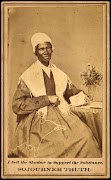Thursday, August 19, 2010
New Year Fall 2010
Our new semester has begun, and my head is swirling with the blur of transition. Still thinking about the novels I read this summer. _The Girl with the Dragon Tattoo_ and the other books of the trilogy, _The Road_ and (best of all) _Cloud Atlas_ (which I wish I'd placed on Intro to Lit reading list). But shifting brain space to fit in readings for classes. Gilgamesh! Hemingway! and (panic) whatever I'm going to have students read in College Reading and Writing II since I tossed the book I ordered for them. Linked this blog on campus page, so guess I should say, WELCOME BACK!
Saturday, July 10, 2010
More on that word!
What fun! The very afternoon after I posted my morning rant about the f-word, an NPR item came over on my Face Book news feed. Of course, I got involved in the conversation! I posted a couple of comments, but when someone came up with the old acronym origin of the word, I decided to cut and paste the OED definition. Here's what I posted: "Brit. /f{revv}k/, U.S. /f{schwa}k/ Forms: {alpha}. 15 fucke, 15- fuck; also Sc. pre-17 fuk.{beta}. nonstandard 19- fook, 19- fug, 19- fuk, 19- fukk, 19- fuq, 19- fuqq. [Probably cognate with Dutch fokken to mock (15th cent.), to strike (1591), to fool, gull (1623), to beget children (1637), ... See Moreto have sexual intercourse with (1657), to grow, cultivate (1772), Norwegian regional fukka to copulate, Swedish regional fokka to copulate (compare Swedish regional fock penis), further etymology uncertain: perhaps < an Indo-European root meaning ‘to strike’ also shown by classical Latin pugnus fist (see PUGNACIOUS adj.). Perhaps compare Old Icelandic fjúka to be driven on, tossed by the wind, feykja to blow, drive away, Middle High German fochen to hiss, to blow. Perhaps compare also Middle High German ficken to rub, early modern German ficken to rub, itch, scratch, German ficken to have sexual intercourse with (1558), German regional ficken to rub, to make short fast movements, to hit with rods, although the exact nature of any relationship is unclear." Obviously, that clears everything up.
Okay, I looked up the two words in question in the Oxford English Dictionary. The word "swive" first shows up in the 1300s in Chaucer, so it really isn't Old English, at least in written texts the OED knows about, but Middle English. The "f word" comes along a couple of centuries later, in the 1500s, and it seems to be of Dutch origin. And, contrary to my hopes, "swive" (which comes from the same root as "swivel") isn't always an intransitive verb, and it even has the connotations of a dirty joke in its first usage, in the hilarious but filthy "Miller's Tale." So it seems that one of the most important, and many of us would say sacred, acts of human relationship can't be discussed for long without sliding into disrespect. A good question would be, WHY?
Okay, I'm ready to rant. What is it about the "F Word" that young people (okay, dating myself--but dating yourself is a bit narcissistic isn't it?).... What is the attraction of that word? Except in some cases where the intensifier is positive ("That was so fuckin' good!") someone is usually getting hurt or taken advantage of--getting fucked. The word would be meaningless and harmless if it didn't have that other history that links it with rape. I remember the first time I ever heard the word "rape" as a child--maybe fifth or sixth grade. Another little girl told me she'd been raped. I can't remember why she told me. It hadn't just happened, but was something in her past. She was not someone I knew well. We were getting to know each other, and this was part of her identity that she was passing along. Information about who she was. We were sitting somewhere outside. She didn't want to say the word "rape" so she wrote it in the sand. But I had never heard the word. This was in the fifties, and I was sheltered. But for some reason, I knew that other four letter word, probably from dirty jokes, probably not really knowing anatomical details of how this happened, and she told me that it meant the same thing. As I listen to the word in context, read it on face book, I think maybe she's right. The word has a history that cannot be shaken. Coming somewhere between rape and consensual coitus, "fuck" and its euphemistic cousin "screw" have become words for being a sucker (another word we need to think about) and a victim who is to be blamed for whatever happened. I have a vivid memory of my daughter's first husband in the middle of the night talking on the phone presumably with another member of a pizza company's management team: "Fuckin' A! Fuckin'A! We fucked them in the ass this time!" This is the sort of thing, whatever it was, that gave him delight.
We could use "shag" but that word has popular culture connections that trivialize the mutual act of bonding (let's ignore for now how lasting that bonding might be) that is the physical act of "making love" that we are talking about here. Although, as a resident of the Carolina coast, the dancing connotation isn't a bad one to me.
But let me propose another word, one with an older Anglo-Saxon origin. I'll check OED for both of them, but I know that, at least in written texts, this word is older. The word I suggest is "swive"--a word that implies a swaying, perhaps a wiving, a mutual movement of two bodies together. I even think of the word "swan"--which conjures up images of a famous rape--Zeus of Leda--but also makes us think of grace and ease of movement. To swive is to work together, not to do something or to have something done to you--an intransitive verb that does not take an object but requires two subjects. So, please, don't fuck with me. Let's swive.
We could use "shag" but that word has popular culture connections that trivialize the mutual act of bonding (let's ignore for now how lasting that bonding might be) that is the physical act of "making love" that we are talking about here. Although, as a resident of the Carolina coast, the dancing connotation isn't a bad one to me.
But let me propose another word, one with an older Anglo-Saxon origin. I'll check OED for both of them, but I know that, at least in written texts, this word is older. The word I suggest is "swive"--a word that implies a swaying, perhaps a wiving, a mutual movement of two bodies together. I even think of the word "swan"--which conjures up images of a famous rape--Zeus of Leda--but also makes us think of grace and ease of movement. To swive is to work together, not to do something or to have something done to you--an intransitive verb that does not take an object but requires two subjects. So, please, don't fuck with me. Let's swive.
Here's the Wikipedia definition of bricolage: "Bricolage (pronounced /ˌbriːkɵˈlɑːʒ/ or /ˌbrɪkɵˈlɑːʒ/) is a term used in several disciplines, among them the visual arts and literature, to refer to the construction or creation of a work from a diverse range of things that happen to be available, or a work created by such a process. The term is borrowed from the French word bricolage, from the verb bricoler, the core meaning in French being, "fiddle, tinker" and, by extension, "to make creative and resourceful use of whatever materials are at hand (regardless of their original purpose)". In contemporary French the word is the equivalent of the English do it yourself, and is seen on large shed retail outlets throughout France. A person who engages in bricolage is a bricoleur."
Monday, June 21, 2010
Women and Sex: Or FISH. NEED. BICYCLE.
A woman needs a man like a fish needs a bike,
some like unicycles, while others just hike.
The flying fish glide,
without needing to ride.
But sometimes a bike’s what I like.
I wrote this to go with an image I pasted on Face Book, but couldn't resist adding it here, because I am rather proud of it!
A woman needs a man like a fish needs a bike,
some like unicycles, while others just hike.
The flying fish glide,
without needing to ride.
But sometimes a bike’s what I like.
I wrote this to go with an image I pasted on Face Book, but couldn't resist adding it here, because I am rather proud of it!
Friday, June 11, 2010
Blogging vs. Face Book
Okay, after some resistance, I am finally on Face Book. And wonder of wonders, I LOVE it! My daughter-in-law and I have "talked" more in the past few weeks than we did for the previous 12 years, and I like her even more than I did before. I am in touch, if not with my brothers, with their families. The configurations of my friends and acquaintances at church and in Kairos Outside, the ministry to women with loved ones in prison that I worked with for three years, have subtly changed, depending upon who is active on Face Book. More importantly, I'm discovering the importance of brevity. I'll come to Blogger when I want to diverge and explore. But the character limit on Face Book is wonderful discipline. Like poetry, it forces me to find the exact words, to cut out the fat and clean the bones.
Sunday, May 23, 2010
Dr. Woo Returns
I haven't been using this blog since the university made it so easy to communicate on Blackboard. But I've recently taken up the Face Book habit, so I decided to link my old blog and maybe learn to do more with it. When my grandchildren learned that I was going on Face Book I was warned not to be shocked or to dig too deeply. Same warning goes here! This may be a side of Doctor Nanny you don't know. But you DO know how I tend to go on and on? Well, I found out that Face Book won't let me do that. Here I get to go on and on and on and on and....
Wednesday, January 27, 2010
World Lit Beginning Again 2010
There's a series of fourteen You Tube entries for "Havoc in Heaven (1965) that fill in the gap at the beginning of "Monkey" in the Norton Anthology of World Lit. Explore!
Subscribe to:
Comments (Atom)










